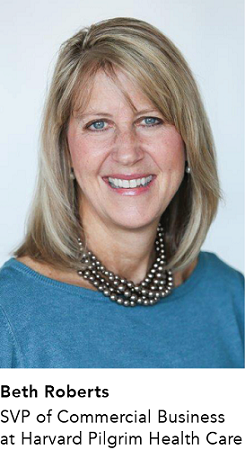
This article first appeared on BenefitsPRO by Lynn Giles on November 30, 2020.
A year of unprecedented challenges to healthcare will bring needed change, say experts.
For years, consumers have faced difficult and often confusing choices while operating in a complex healthcare system, making them feel overwhelmed, uncertain and even unheard during healthcare interactions. However, a sea change in the approach to benefits was happening. Today, experts say the COVID-19 pandemic has ramped up this process exponentially.
“Healthcare has been transforming and evolving for quite some time now,” says Dr. Elizabeth Coté, Chief Mission Officer at MyHealthMath, a Portland, Maine based company that helps consumers choose health plans based on their best interests.
“Now the trend is magnified, because the entire country is experiencing a major health care episode,” Coté says. And because leadership hasn’t been consistent in managing the pandemic (and its impact on health care), it’s created more ambiguity than ever before and a hunger for answers.
 Advancing transparency
Advancing transparency
 Citing a “blanket of exhaustion settling on the nation,” she says the solutions that offer more transparency and clear answers will win the day for consumers seeking more direction and engagement. Beth Roberts, senior vice president for commercial business at Harvard Pilgrim Health Care, agrees, noting that transparency should be “a journey” throughout the health care decision-making process.
Citing a “blanket of exhaustion settling on the nation,” she says the solutions that offer more transparency and clear answers will win the day for consumers seeking more direction and engagement. Beth Roberts, senior vice president for commercial business at Harvard Pilgrim Health Care, agrees, noting that transparency should be “a journey” throughout the health care decision-making process.
It starts when an employer chooses which plan (or plans) their company will offer employees as part of their benefits package, and continues with employee education during plan selection – or open enrollment – time for the employee population.
Roberts says it’s also important for employees to be “empowered and educated” at the time they select their plan, having a clear understanding of both the benefits covered by the plan that they select, as well as the potential out-of-pocket costs. From there, having a navigation system to help them shop for cost-effective healthcare can play an important role and potentially provide them with a financial incentive when they opt-in for lower cost options when choosing where they will receive health-related services and care.
“Sharing in the reward helps change behavior down the line,” says Roberts.
 Enhancing virtual care
Enhancing virtual care
Changes are occurring from a practical standpoint too, with providers and carriers quickly enhancing the virtual experience to increase access to combat the isolating nature brought on by the pandemic.

Roberts adds that the industry is at a “tipping point” due to the rising costs of health insurance and that the insurers who can help consumers navigate and make health care decisions in their best interests, such as accessing the preventative care that’s covered under their plan, and ensuring that any barriers to access are removed by offering members different options, including through digital channels, to receive this care, will be the companies that stand out. “It’s important that no matter where a consumer is on the health care spectrum, they are able to access the care they need,” Roberts emphasizes.
 Furthering accountability
Furthering accountability
Accountability—that is, insurers playing an instrumental role in helping consumers understand their cost of healthcare in advance—will also be a stark differentiator, adds Coté. This is because both employees and employers want to know the value of their health care dollars.

According to Roberts, insurers are driving accountability through even more transparency in cost and access. “It’s incumbent on us (as insurers) to make sure people understand how to engage with their health care plan and what to expect both when they are healthy—and when they require assistance navigating the system in a time of need,” says Roberts. “We need to find more ways to be a good partner to give members the very best outcomes.” These outcomes are both health and financial related.
Health insurers and employers can be invaluable allies during this crisis to help improve the consumer experience in an evolving health care environment.
Learn more as Beth Roberts and Dr. Elizabeth Coté continue this important conversation in the recent podcast series, The Path of Transformation & Change: Health Benefits in 2021, sponsored by Harvard Pilgrim Health Care.
To confirm eligibility for any programs or services mentioned in this article as it relates to your specific health plan, please reach out to your account executive or HR benefits team. You may also speak to our member services team at (888)-333-4742 or by sending a secure email. And for plan details and other member resources, log in to the member portal.